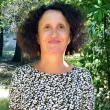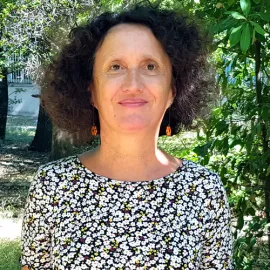Understand to better accompany: a multidisciplinary approach to family farming in the South and levers of supportive action at the local, regional and national level
|
What type of training ? |
une formation diplômante, sous statut étudiant |
|---|---|
|
For who ? |
student with a French diploma, international student |
|
Where ? |
Centre for Tropical and Mediterranean Studies |
Objectives
The Markets, organization, quality, services and policies in southern agriculture (MOQUAS) specialization focuses on the interface between family farms and their environment. The specialization trains professionals to systematically grasp agricultural dynamics and diverse rural development issues in order to formulate practical and appropriate responses. This systemic approach is particularly needed to understand the complexity of continually changing agriculture in Southern countries. MOQUAS focuses on the following support functions of agriculture professionals involved in development activities in the South:
- Supporting farms and farm households: strengthening production systems and sustainable activities for food security, income, employment
- Supporting the strengthening of family farming professional organizations: structuring, strategic thinking, partnerships, contribution to public policies
- Supporting the insertion of agriculture in markets, sectors, territories: conventional routes versus alternative routes (qualification of products, short food supply chains, fair trade, ...)
- Supporting the development of support services to farmers and their organizations: farm advisory, financial services, training engineering, animal health, market information services
- Design and realization of evaluation and impact assessments of development support schemes (development assistance programs and projects).
Themes
- agronomy, agroecology
- biodiversity knowledge and management
- Mediterranean and tropical countries
- plant protection
-
Programme
Number of ECTS credits : 60 ETCS
Language of instruction : In French
The curriculum is organized in 8 units, each lasting 2 to 4 weeks. The first and the last teaching units include a group internship in the field in France or abroad. The curriculum is designed to offer theoretical, methodological and practical knowledge in the fields covered.
MOQUAS includes courses on the following topics:
- Transversal unit: questioning sustainable development standards
- Understand family farming through a systemic approach (4 weeks, including 2 weeks of a group internship to collectively implement the agrarian diagnosis method in a small region)
- Support the structuring of family farming / understand and work with agricultural and rural organizations
- Accompany collective action, manage shared resources
- Insertion of agriculture into markets (international agricultural markets, alternative markets, certifications and standards)
- Co-build services with family farms (case studies of different services to support agriculture in the South, and in-depth study of microfinance services, agricultural extension and training engineering)
- Support the involvement of family farms in development policies
- Design, manage and assess a development project and analyze its impact
- Professional experience: a two-week collective internship implementing a study to respond to a professional demand
- Transversal unit of professional development: different sessions are planned during the year to work with the students on their career plans and operationalize their searchs for internships and future employment.
Internships
The objectives of the individual internship (6 month, compulsory) are:
- Professional placement to support agricultural and rural development: responding to a development organization's request for a study, joining an organization and a professional team;
- Implementation of a scientific approach using theoretical references, methods and tools taught during the year;
- Production of original data based on field work;
- Production of a high quality, professional, scientific summary document integrating research findings on a given theme and providing an original answer to the organization ;
- The internship usually lasts 6 months, including 4 months of fieldwork, often at the request of professional partners in the North and South. The internship ends with the writing of a thesis that is defended to obtain the diploma (engineer or master).
-
Calendar
- From 06 sept. 2021 to 31 april 2022: classes
- From 1st april 2022: start of the compulsory internship (6 month)
-
Admission
Candidates can apply to the International Master “Agronomy and Agrifood Sciences”:
- in the first year, Master 1, to complete the two years of the Master 3A programme at Montpellier SupAgro,
- or directly in the second year, Master 2.
-
Careers
The course prepares graduates for a wide range of positions related to the sustainable development of family farming in the South. The graduates of MOQUAS may join the following institutions:
- Development support agencies: national and multilateral institutions, NGOs, foundations;
- Professional agricultural organizations, trade unions and chambers of agriculture, technical institutes, development associations, and territorial organizations;
- Vocational training centers, higher agricultural training institutions, research centres;
- Private sector: consulting firms, banks and microfinance, contract farming companies, social and solidarity enterprises;
- Possibility of continuing with a PhD.
Director of studies
Partners
Research partners:
- CIRAD
- IRD
- UMR Innovation
- UMR MOISA
- UMR Art DEV,
- UMR G-EAU
Partners: IRAM, GRET, FERT, AFD, Max Havelaar, Ecocert…
Place
Pôle Tropiques et Méditerranée
Campus de Lavalette
1101, avenue Agropolis
34090 Montpellier - France
Registration
Key features
- Multidisciplinary and systemic training in fundamental issues of agricultural development.
- Career oriented training programme, deeply rooted in development professions.
- Curriculum integrating case studies and the analysis of development interventions across a wide range of localities and contexts in the South.
Fees
- Complete programme (M1 + M2): €10,700 for the two years (M1: €5,600 and M2: €5,100) + €105 Contribution Vie Etudiante et de Campus (CVEC) administrative fee
- Direct admission in the 2nd year (M2): €5,800 + €105 Contribution Vie Etudiante et de Campus (CVEC) administrative fee
Contacts
-

Philibert DE DIVONNE
Programme coordinator
- Centre for Tropical and Mediterranean Studies
Email : philibert.de-divonne@supagro.fr
L'Institut Agro Montpellier
2 place Pierre Viala
34060 Montpellier - France
Tél. : +33 (0)4 99 61 22 00 Tél. : +33 (0)4 99 61 22 00
Fax : +33 (0)4 99 61 29 00
contact@supagro.fr
























